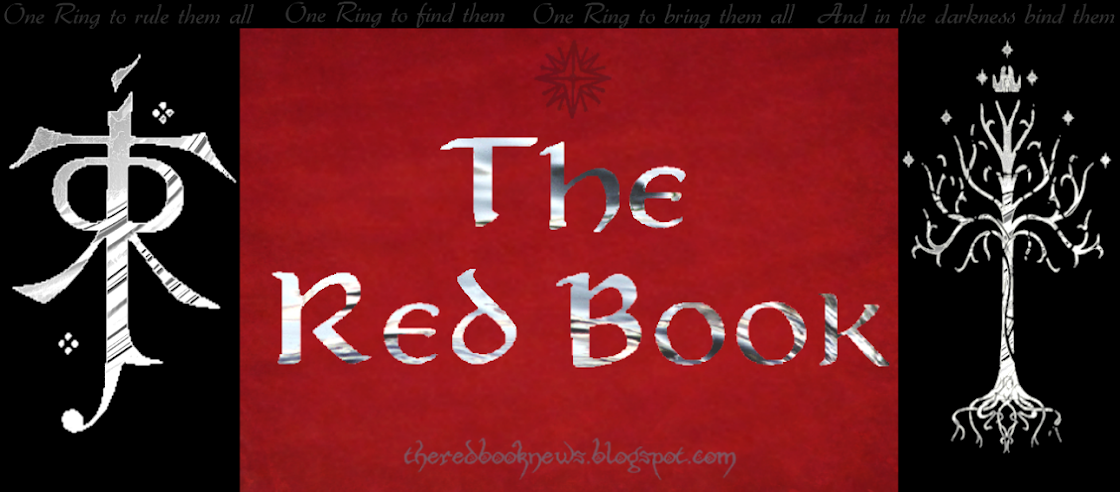When I was nine years old, my dad brought home a series of books. My inquisitive nature (and love of reading) prompted me to to inquire what books they were.
He answered, “This is The Lord of the Rings by J.R.R. Tolkien. Would you like to read them?” I replied that I would, and thus began my discovery of the writings of Tolkien. Over the years I have been drawn to Tolkien’s works, time and time again, for many different reasons, but here I produce my top three:
#1 Tolkien clearly makes a distinction between good and evil characteristics and deeds,
#2 Tolkien describes his characters in depth and does not skim over detail,
#3 Tolkien has a realistic style of storytelling.
I particularly dislike certain novels that glorify people who commit questionable deeds to achieve a good end (i.e., Harry Potter).
In Tolkien’s writings this murky grey area does not exist; evil deeds are condemned whereas good ones are praised (by all who are wise enough to realize the goodness of the acts). Sacrifice and loyalty to attain a good end or change is a prominent theme throughout The Lord of the Rings. Frodo and Sam must embark on a long, dangerous journey to the Cracks of Doom, in the very heart of Mordor, where the Ring will be unmade.
Frodo Baggins, a hobbit of the comfortable Shire, sacrifices that comfort so that the Shire - and the whole of Middle Earth - might be spared from a perilous evil. His gardener, Samwise Gamgee, out of the utmost loyalty to Master Frodo, travels alongside Frodo as his constant companion and counselor, never once complaining of his own needs and hardships.
Both Hobbits display consistent examples of the good, true, and beautiful qualities that a true hero should possess. At times they must hide or flee, but never do they lie, cheat, steal, or commit some other evil deed to complete their mission.
Tolkien invests in every single one of his characters, whether they are major or minor to the plot of the story. The ultimate (and my personal favorite) example of this is Tom Bombadil. Tom Bombadil is neither Elf, Man, Dwarf, or Hobbit; in fact, no one is exactly sure where he came from. He simply is. The little band of Hobbits traveling through the old forest (Frodo, Sam, Merry, and Pippin) are rescued by Tom and are led to his house, where they spend the night. The next morning they take leave of him, but are caught by a Barrow-wight from which he rescues them, and then he merrily returns to his house and is never seen again. While it appears Tom contributed very little to the overall plot, Tolkien still brings out his personality in such a way that one would think he is the most significant character. Tolkien designated a purpose for every character, place, and object; he dismisses nothing and no one, which is why I am particularly drawn to his writings.
The realistic quality of Tolkien’s storytelling is often taken for granted, especially by first-time readers. For example, in Book I of The Lord of the Rings, in the chapter “Three is Company”, Frodo, Sam, and Pippin set off to Buckland, where Frodo will move into a house (on pretense of staying there permanently), and leave shortly thereafter for Rivendell. The three hobbits walk many miles and run into some Elves, who journey alongside them. Not much else occurs in the chapter, which would prompt people to wonder why Tolkien spent so much time writing about walking. Tolkien is precise in the narrating of his story: the Hobbits walk all day, spend the night with the Elves, and two whole chapters later reach Buckland. I recall reading The Fellowship of the Ring for the first and wondering, “Why didn’t Tolkien simply cut to the action? Why spend two or three chapters writing about walking?” He did it that way because that is how it is in reality. If Tolkien had simply “cut to the action,” the whole journey would feel rushed and the lack of detail would be incredibly unsatisfying. Although some out there would declare that realistic writing is boring and unexciting, I find that attractive - it is yet another reason why I enjoy reading Tolkien so much.
I could continue on and on about the many reasons I read Tolkien (but I would get sidetracked and my faithful audience would become weary of reading this), so I will say this: If anyone has ever been doubtful about reading (or re-reading) The Lord of the Rings or The Hobbit, I hope that my reasons will motivate you to try. Distinguishing between good and evil characteristics, in-depth description of characters, and realistic narrating style are all qualities that I enjoy about the works of Tolkien. You will rarely find an author as excellent as Tolkien who can pull off these traits with fluency, so I encourage all of you to read his books. If you have any reasons as to why you read Tolkien, please comment below!
A note about the author:
I have been reading and studying Tolkien for 6 years now, and my love for it has grown with time. Besides Tolkien, I enjoy playing piano, studying languages (right now French, Latin, and Quenya ;)), and writing short stories and poems. I hope to travel to Italy someday, as well as Poland and New Zealand (because, you know, that's where Hobbiton and the rest of Middle Earth is!) That's a little about me :) Thanks for reading!
I'd like to thank Mary Grace for this excellent recommendation of Tolkien and his works. I imagine this will be helpful should any of you readers encounter someone who has reservations about reading LOTR, or if you haven't read it yourself. Also if you know someone who hasn't read it, you should make it your mission in life to get them to do so. After all, it's for their own good.
~Goldenrod






